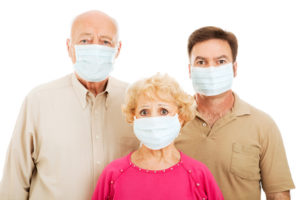Mold And The Law… What Landlords Should Know

Can You Smell Mold?
If you’re a commercial property owner, liability lawsuits are an unfortunate reality of your business. But slip-and-falls aren’t the only issues you need to be mindful of. Failure to handle Manhattan mold removal in your properties can leave you open to legal action by your tenants.
Dangers of Toxic Mold
Mold species S. chartarum and S. chlorohalonata, commonly known as toxic mold, are more than just aesthetic annoyances. These types of mold emit mycotoxins that pose a number of health risks, ranging from allergic reactions such as sneezing and coughing to infections, asthma attacks and more serious respiratory ailments.
While mold spores are always present in the air, they’re generally harmless. Problems arise when indoor conditions are excessively damp, giving spores the moisture they need to grow and reproduce. High humidity levels, broken pipes and leaky roofs are frequent culprits behind toxic mold development.
How Mold Issues Affect Landlords
Landlords are responsible for maintaining habitable rental properties. If mold is due to physical damage or improper cleaning after a flood, you could be subject to compensatory and punitive damages on behalf of affected tenants.
NYC wants to make it easier for tenants to receive Manhattan mold removal as soon as possible. In addition to contacting their landlords promptly, tenants are urged to report mold-related issues on the city’s official 311 website.
Commercial and Residential Manhattan Mold Removal
Contact Stern Mold to schedule a free mold inspection and learn more about our proprietary two-step MoldExterm program.
